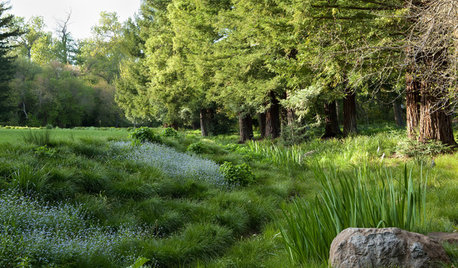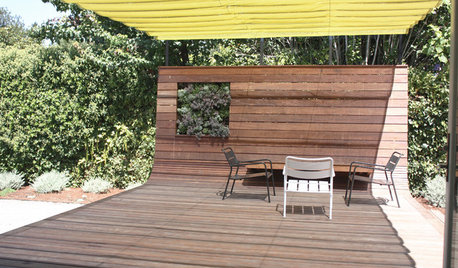reducing hard water for garden
greendumb
14 years ago
Related Stories

MOST POPULAREasy Green: 23 Ways to Reduce Waste at Home
Pick from this plethora of earth-friendly ideas to send less to the landfill and keep more money in your pocket
Full Story
LANDSCAPE DESIGNLearn Your Garden’s Microclimates for a Resilient Landscape
Reduce your water demand and learn the basis of planting the right plant in the right place
Full Story
MATERIALSA Hard Look at Recycled Plastic for the Home
It's durable and versatile, but processing takes a lot of energy. We sort through the facts on recycled plastic so you can choose wisely
Full Story
EARTH DAYGrow a Beautiful Garden With Ecofriendly Greywater
Reducing home water waste means lower bills and a healthier planet. Here's how to set up a greywater home irrigation system that can help
Full Story
GARDENING GUIDESGreat Design Plant: Anemone Canadensis Adds Pizzazz to Water’s Edges
Plant Canadian anemone along pond, lake or stream edges for a splash of white flowers in late spring
Full Story
SAVING WATERXeriscape Gardens: How to Get a Beautiful Landscape With Less Water
Conserve water and make gardening much easier with the xeriscape approach’s 7 principles
Full Story
SAVING WATER11 Ways to Save Water at Home
Whether you live in a drought-stricken area or just want to help preserve a precious resource, here are things you can do to use less water
Full Story
LANDSCAPE DESIGNGet Along With Less Lawn — Ideas to Save Water and Effort
Ditch the mower and lower your water bill while creating a feast for the eyes with diverse plantings and gathering places
Full Story
LANDSCAPE DESIGNHow to Move Water Through Your Landscape
Swales, underground pipes or a mix of both: There’s more than one way to distribute water in the garden
Full Story
DECKSA Family-Friendly California Yard Wises Up About Water
Pavers and unthirsty plants replace Kentucky bluegrass in a Menlo Park landscape for a family of 4
Full Story







lehua49
nohandle
Related Professionals
Winder Landscape Architects & Landscape Designers · East Patchogue Landscape Architects & Landscape Designers · Wilmington Landscape Contractors · Maple Valley Landscape Contractors · Aloha Landscape Contractors · Chattanooga Landscape Contractors · Inglewood Landscape Contractors · Live Oak Landscape Contractors · Nashua Landscape Contractors · Snoqualmie Landscape Contractors · South Lake Tahoe Landscape Contractors · Tewksbury Landscape Contractors · White Bear Lake Landscape Contractors · Randolph Solar Energy Systems · Whitney Solar Energy Systemslehua49
nohandle
lehua49
dirtydan
hydro4me
nohandle